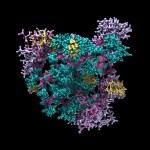 Researchers from the Max Planck Institute for Neurological Research and the Cluster of Excellence in Cellular Stress Responses in Aging-associated Diseases (CECAD) at the University of Cologne have demonstrated how insulin, a powerful hormone, behaves in the ventromedial hypothalamus area of the brain. According to a recent publication by ScienceDaily, the scientists found that the hypothalamus plays an important role in energy homeostasis, that is the regulation of the body’s energy balance. The group’s objective was to find out how hunger and the feeling of fullness occur, so that through understanding the entire system, appropriate treatments can be created.
Researchers from the Max Planck Institute for Neurological Research and the Cluster of Excellence in Cellular Stress Responses in Aging-associated Diseases (CECAD) at the University of Cologne have demonstrated how insulin, a powerful hormone, behaves in the ventromedial hypothalamus area of the brain. According to a recent publication by ScienceDaily, the scientists found that the hypothalamus plays an important role in energy homeostasis, that is the regulation of the body’s energy balance. The group’s objective was to find out how hunger and the feeling of fullness occur, so that through understanding the entire system, appropriate treatments can be created.
It is known that POMC cells, which are special neurons in the hypothalamus area of the brain, respond to neurotransmitters and control eating patterns and expend energy. Insulin is a vital messenger hormone, responsible for causing the carbohydrates consumed through food to be moved to muscles where it is available as an energy source. Additional insulin is created in the pancreas when fatty food is eaten. Its concentration in the brain also surges when fatty food is consumed. The relationship between the insulin and the target cells in the brain also has a vital part in regulating the energy balance in the body.
For the study, the researchers examined mice that didn’t have an insulin receptor on the SF-1 neurons in comparison with mice whose insulin receptors were functioning. They found no difference between the two groups with normal food consumption, indicating that insulin is not a significant influence on the activity of these cells for lean people. When the mice were given fatty foods, those with the defective insulin receptor stayed lean. However, the others with functioning receptors quickly gained weight.
According to the article, this role of insulin could prove the evolutionary adaptation by the human body to a sporadic supply of food and long bouts of hunger. This would mean that if a large supply of fatty food is available to the body temporarily, the body can store energy reserves especially well because of the role of insulin.
You can read more about the hormone insulin and its role in diabetes here.






Weight Loss Studies & Clinical